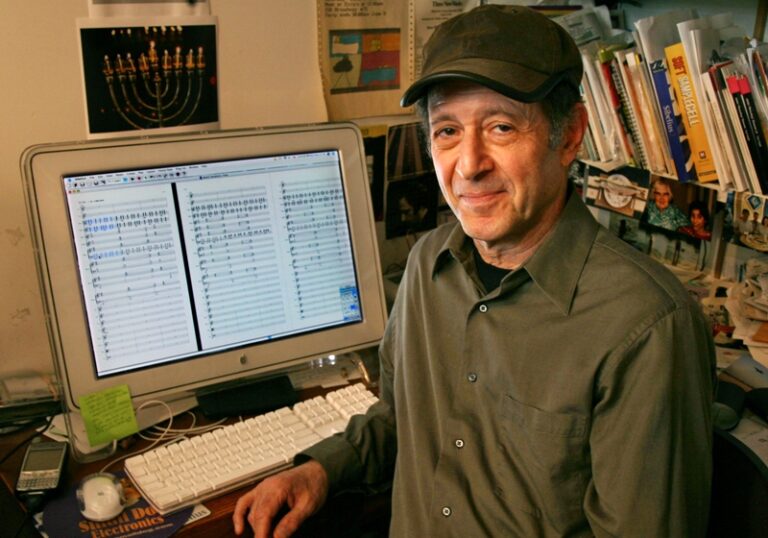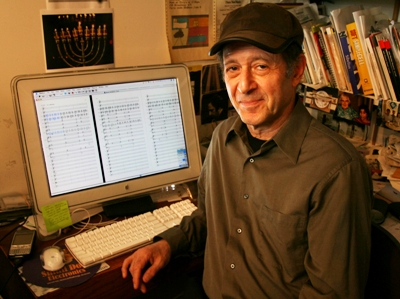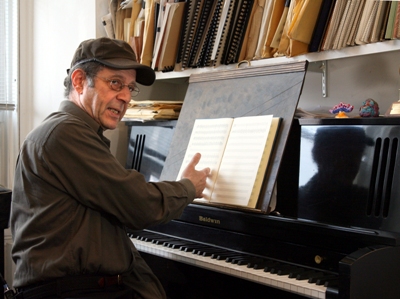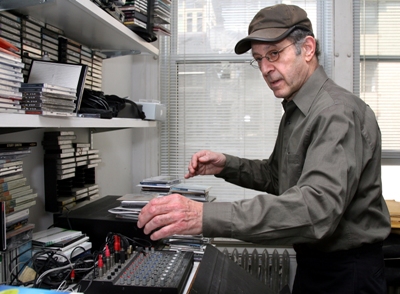The 18th
LaureateMusic
Steve Reich

As a pioneer of minimal music,that is to say music characterized by the repetition of simple musical shapes,Steve Reich is considered "today’s most original musical mind" (New Yorker Magazine). After graduating from Cornell University where he studied philosophy,he went on to the Juilliard School where he studied composition with William Bergsma. During his early period,Reich was inspired by the phase lag that occurs when two tape loops with identical text are played simultaneously. This led to the composition of It’s Gonna Rain in 1965,one of his representative works. From the 70s onwards he studied traditional African and Balinese music as well as,as a result of a rediscovery of his Jewish roots,traditional Hebraic Biblical chanting. It is at this time that Reich also rediscovered "melody taken by words." He has received two Grammy Awards -one for Music for 18 Musicians (1974-76) and the other for Different Trains (1988) which takes up the theme of the Holocaust. His opera,The Cave,premiered in 1993,was lauded as "how Opera should be in the 21st century" (Time Magazine). This year,various concerts are being held all over Europe and America to commemorate his 70th birthday.
Biography
From his early taped speech works -It’s Gonna Rain (1965) and Come Out (1966) to Three Tales (2002),Steve Reich’s path has embraced the structures,harmonies and rhythms of non-Western and American vernacular music,particularly jazz. As a pioneer of minimal music,or systems music,music characterized by the repetition of simple musical shapes,Reich is regarded one of today’s most original musical minds. His work is concerned with sound continuums that evolve gradually,and contain little or no variation of pitch,tempo,dynamics or timbre,or characteristic concerns of traditional Western music such as harmonic movement,key modulation or thematic development. Working outside of the mainstreams of European and American music,Reich drew inspiration instead from various ethnic musical forms. While Reich’s earlier music involves a decisive rejection of the Western classical tradition,his later work shows an increasing tendency to accommodate aspects of that tradition,often in combination with Eastern and Afro-Asian stylistic elements.
After graduating from Cornell University where he studied philosophy,he went on to the Juilliard School where he studied composition with William Bergsma. During his early period,Reich was inspired by the phase lag that occurs when two tape loops with identical text are played simultaneously. This led to the composition in 1965 of It’s Gonna Rain,one of his representative works. From the 70s onwards he studied traditional African and Balinese music and,through a rediscovery of his Jewish roots,traditional Hebraic Biblical chanting.
Reich has received two Grammy Awards -one for Music for 18 Musicians (1974-76) and the other for Different Trains (1988) which takes up the theme of the Holocaust. His opera,The Cave,exploring the Biblical story of Abraham,Sarah,Hagar,Ishmael and Isaac,premiered in 1993. Epic in proportion,the original five-screen,eighteen musician production consists of edited documentary video footage timed with live music. His music has been performed by major orchestras around the world,and has had a major international impact on young composers. This year,various concerts are being held in Europe and the United States to commemorate his 70th birthday.
Chronology
-

At his home
-

At his home
-

At his home

